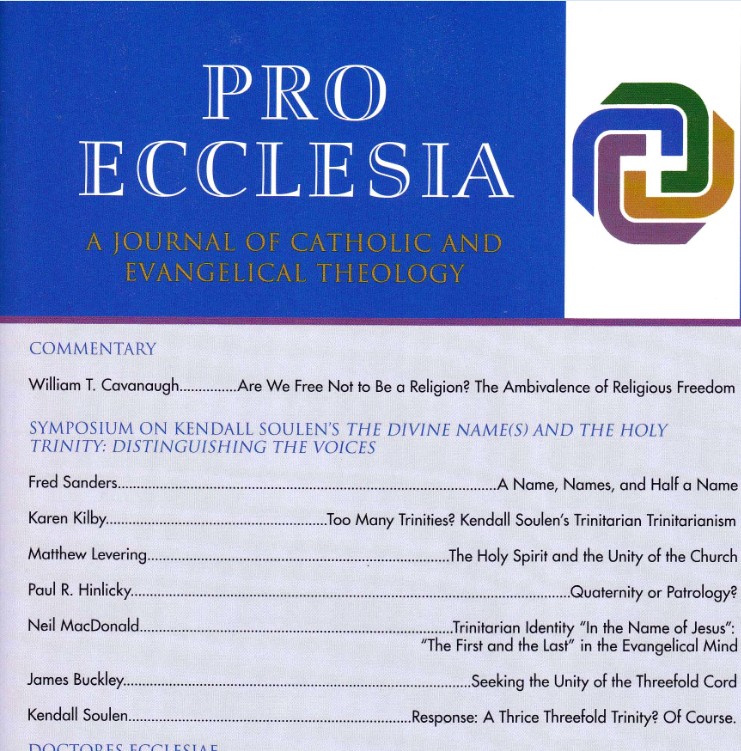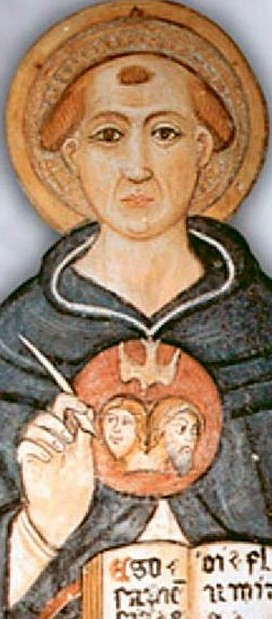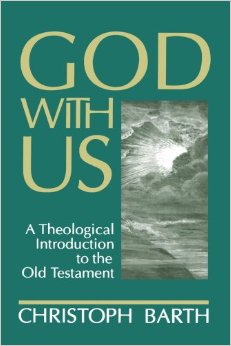The 2014 Los Angeles Theology Conference, “Advancing Trinitarian Theology,” will be on January 16 and 17 at Fuller Theological Seminary. The conference is designed so that it can easily be used as a content delivery system for a class on trinitarian theology.
Registration is already open, and the early-bird rate is in effect until November 30. Combined with the group rate (ten or more registrants), you can bring the registration price down to $70. And there is a student discount code at the bottom of the registration site which gets you an additional $20 off.
We have five trinitarian theologians of known reputation (Ayres, Holmes, Kilby, McCall, Sanders) doing plenary sessions in the big room, and then talking things over at a final panel discussion moderated by Oliver Crisp. And then there are electives: three different parallel sessions during which you can choose to hear 3 of the 9 shorter papers being presented. You can choose among papers of a more doctrinal, philosophical, historical, or aesthetic bent. We’ve got Samuel Powell, Kyle Strobel, Jason Sexton, Brannon Ellis, Kendall Soulen, Awet Andemicael, Robert St. Hilaire, Darren Sumner, and Dale Tuggy. Check out the schedule and the full titles of their papers here.
Adding five plenaries and a panel discussion to three breakouts, you can attend a total of nine presentations (about twelve hours) on the Trinity at this conference. That’s a lot of doctrine! Or, to put it in academic terms, that’s a whole lot of “contact hours” with professors or “seat time” taking in lectures. We’ll have groups of students coming in from local colleges and seminaries to take advantage of this opportunity for instruction in trinitarian theology. If you’re a theology student, consider attending the Los Angeles Theology Conference this January.
If you’re a theology teacher, consider the next step: use this conference as a way of delivering 12 hours of focused instruction on a key doctrine to your students. We’ve set the quality standards very high at LATC on purpose. This conference is a resource that’s worth more than extra credit; it can easily be part of the core academic delivery of a class you’re teaching. With top theologians speaking on a key doctrine in a carefully-sequenced conference, it’s pretty obvious how you can make this worth academic units at your school: Add some preliminary reading and a post-conference discussion, plus a final reflection paper, and you’ve got a well-rounded educational experience on the doctrine of the Trinity.
You’ll want to choose your reading assignments based on your own desired class outcomes, he intoned pedagogically, but one option is to assign some books by the conference presenters themselves. That would deepen the conference content directly, giving students the kind of extended, published arguments that can be brought to life by hearing the authors in person, perhaps even posing questions to them during the discussion periods. Another option is to assign classic primary texts from patristic or medieval theologians whose work will be discussed constantly throughout the conference. That would help students listen in on the centuries-long conversation of Christian doctrine for themselves, and understand how living theologians are not simply making things up as they go along, nor simply leaping back to Scripture as though nobody had read it yet, but are engaged in retrieval and reconsideration of the great tradition. Either approach would give students plenty of guided reading to set them up for writing lively term papers.
I know of at least two local theologians who are using LATC 2014 to deliver some of the content for their Trinity courses: Brian Lugioyo at Azusa Pacific University is teaching a seminar that discusses Augustine’s De Trinitate and also Khaled Anatolios on Nicaea, and Earl Waggoner at Golden Gate Baptist Theological Seminary (Brea campus) is teaching a January-term class
If you need more information or just want to brainstorm about possibilities, e-mail me at fred dot sanders at biola dot edu and let’s talk.
And if you can’t make it this year, be sure to put this on your January calendar from now on. We intend to have a conference every January, with plenary videos posted in March and a book published by November of that year. Our next four annual topics will be atonement, pneumatology, dogmatics, and theological anthropology.
Check out the 2013 videos here, and the published proceedings here: Christology Ancient and Modern.










